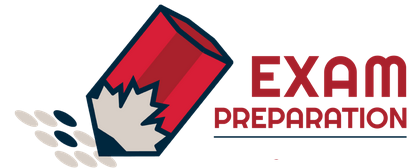PREPARATION FOR EXAM
Many people have difficulty communicating their knowledge during exams, in particular because of excessive anxiety. In fact, high stress interferes with cognitive functions (eg concentration, memorization) and therefore affects performance. Different strategies to prepare for and take exams, as well as to control your stress can improve the situation.
Try to identify your fears about the upcoming exam
What are you worried about the exam? Try writing down any doubts you have about the assessment on a sheet of paper. This exercise will make it easier for you to take a step back from your doubts.
Review your skills before the exam
How is your preparation for the exam? If there is none, it is normal to experience a high degree of anxiety… if your studies are important to you! However, if you have put in the time for proper preparation, it would be worth considering before you fear the exam too much. Take your course notes or another document in which most of the concepts are summarized (e.g. detailed lesson plan). Test your comprehension and your memorization by an overview of the different information. If you master the vast majority of concepts, is it certain that the exam will go wrong? Before doubting your abilities too much, analyze your skills based on real facts.
“I have studied well, but I have already had unsatisfactory results in spite of a good study…”
Most exams assess what you have learned in the course. If you master the material, you have a good chance of succeeding. However, poor performance may occur despite sufficient preparation time. Usually, there are reasons for poor performance: good comprehension but lack of memorization, good memorization but misunderstanding, panic during exams, last-minute study, gaps in course prerequisites, etc. Analyze the possible reasons for the poorer results and try to remedy them. This is more effective than being very worried, without taking action.
What to do the day before the exam
If you master the material, you can do a short review of the concepts and rest. You will need your energy during the exam and it is not very effective to persist in studying known concepts. If you’re late, there’s no other way but to go for broke. Avoid sleepless nights though, because if you’re unprepared, you’ll need all your brains.
CONTROL YOUR ANXIETY DURING THE EXAM
Anxiety can arise at different times when you are taking an exam: at the start, when encountering a difficult question, or towards the end, when time is running outIt is this diversion of attention added to the physiological activation of anxiety that causes memory lapses and difficulty in thinking well.
Redirect your mind to matter
When you experience a lot of anxiety, your attention is no longer directed to matter but to negative thoughts. Try to redirect your attention on the concepts studied by evoking it in a broader way towards the more precise. For example, if you experience a degree of anxiety that affects your concentration, breathe for a few seconds and try to remember what you saw in the course in general: What was the subject of the course? What did you see in the other chapters? What are the other notions of the chapter referred to in the question? Remember other exercises you have done in the course, even if they are not related to the question. This way of doing things will allow you to more easily redirect your attention to the material,
Your mandate for the exam: think about the material
Many people who are anxious during exams foresee disasters as soon as the answer to a question is not obvious to them on first reading. The notions studied are complex and numerous, so it is normal not to always know the answer from the first reading. Take the time to think properly, it’s your job on the exam and it’s normal.
For essay questions
For multiple choice questions…
Recite the answer before looking at the choices. You will be less influenced by a series of false assumptions.
If you hesitate between 2 statements, try to find the arguments that prove the falsity of each of them. It is often more enlightening to find which statement seems the most false than to try to identify which is
Open-book exams have certain particularities. In general, the questions will be more focused on the in-depth understanding of the concepts and their application to practical cases. It is less frequent to find questions whose answers are found verbatim in your notes or your readings. So, during the preparation, promote understanding of the concepts by asking yourself questions about their concrete applications. If you have examples or case studies in your documents, analyze them well.



